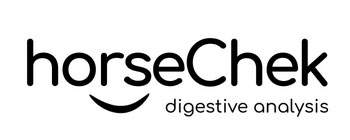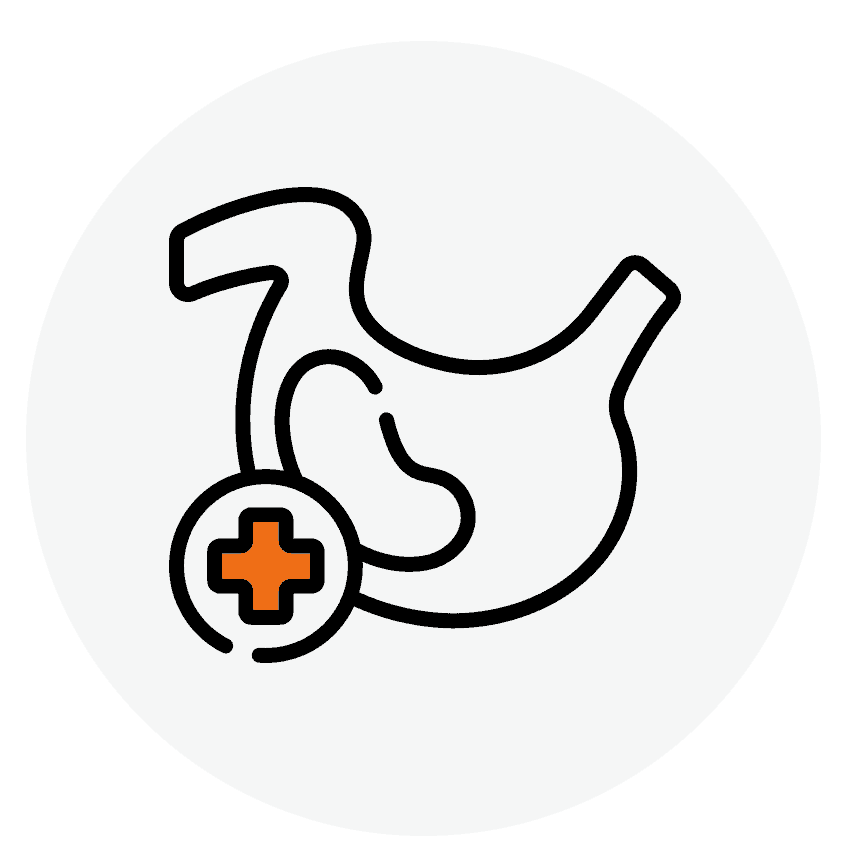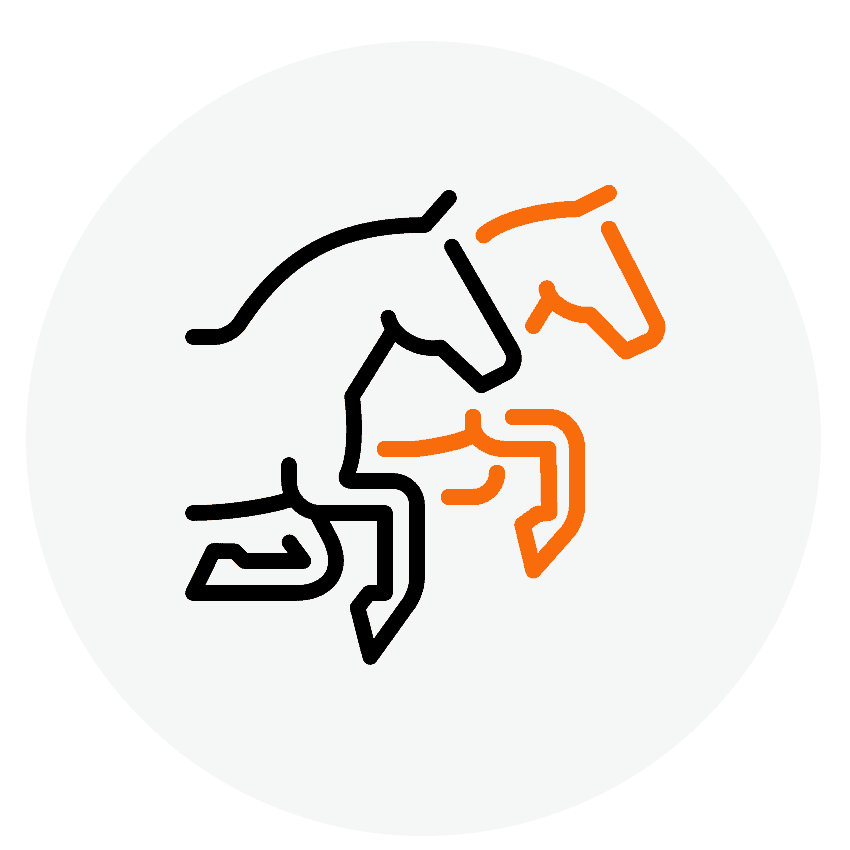"We suspected it might be something in her feed but didn't know what to change. We tried horseChek and the test showed us exactly what to change and what to remove from her feed program."

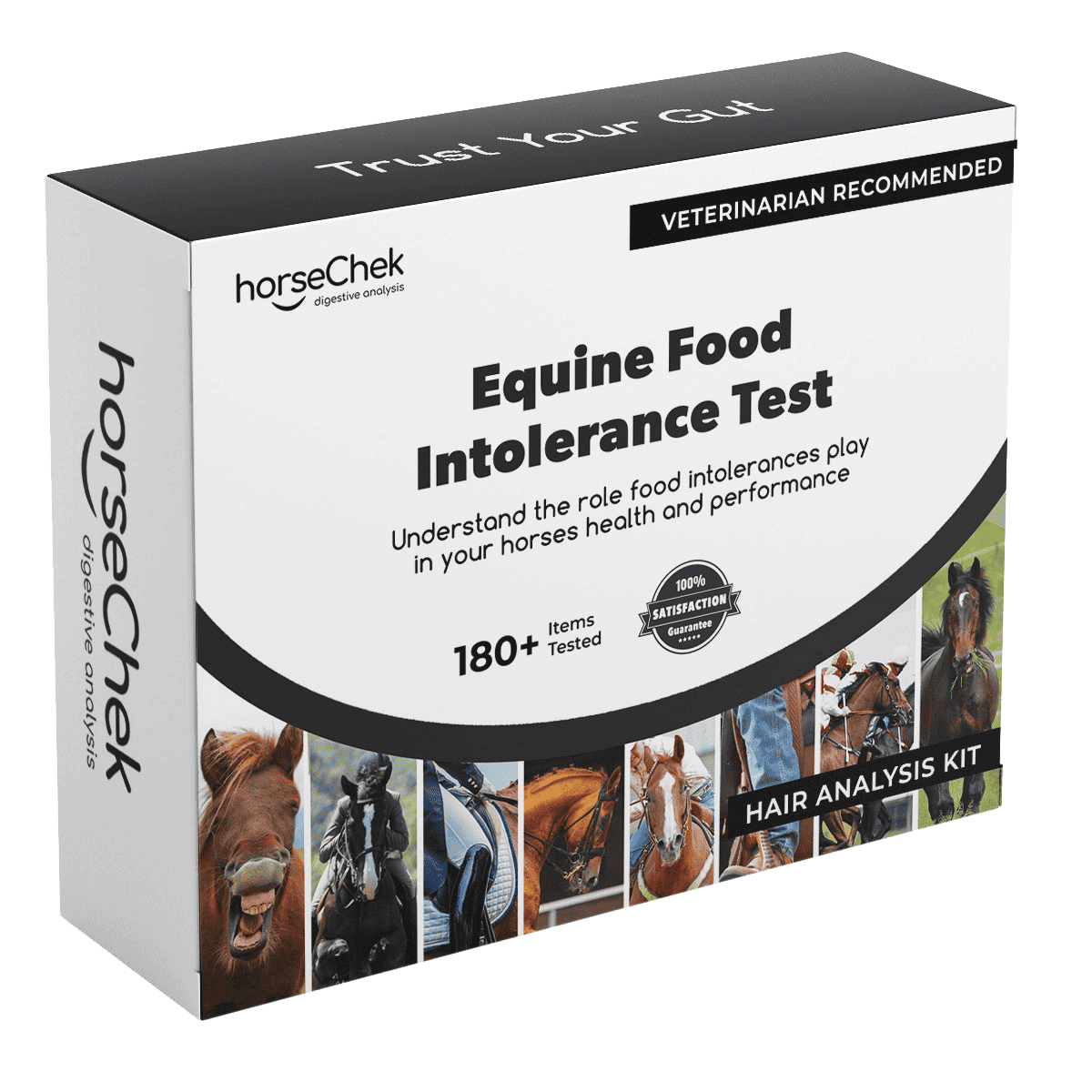

Ulcers were affecting her performance!
"My best barrel racing horse, that's always in the money, started to behave badly and this was not normal for her. She gets excited before we race, but this was different. She was very cinchy when saddling, kicking out when I put my leg on, she just wasn't right!
We suspected it might be something in her feed but didn't know what to change. We tried horseChek and the test showed us exactly what to change and what to remove from her feed program. The test revealed sugar, molasses and some preservatives, that were in her complete feed, were all high intolerance items. Once these were removed from her diet, we noticed significant improvements in her behaviour and focus. Within 3 weeks she was off her expensive ulcer medication, that didn't seem to solve the problem, and she was back to her awesome, willing and fast self! It's a year later and we've never looked back!"
Signs that your Horse might have Ulcers
- Poor Appetite
- Weight Loss or Poor Body Condition
- Poor Coat Condition
- Chronic Diarrhea
- Re-ocurring Colic
- Behavioural or Temperament Changes
- Sensitivity in the Girth and Flank Area
- Cribbing or Teeth Grinding
- Excessive Salivation
- Poor Performance
- Lack of Energy
Dealing with Ulcers naturally with Herbs
Herbs that may aid in the treatment of ulcers in horses. The most common are: Liquorice, Comfrey leaf, Marshmallow Root, Meadowsweet and Slippery Elm.
These contain properties, that may aid in protecting the stomach lining.
Strategies to prevent ulcers
- Add supplements to aid in digestive health.
- Ensure constant access to water.
- Feed little and often to avoid an empty stomach.
- Socializing with others.
- Always feed high quality hay and a fibre-rich diet .
- Provide a source of high quality protein.
- Limit excess stress, if possible.
- Access to turnout and grazing.
Dealing with Ulcers naturally with Feed
Alfalfa due to its high calcium content may help to buffer stomach acid and protect the stomach lining.
Aloe vera is thought to soothe the digestive tract and potentially reduce pain.
Magnesium has shown its ability to aid with stress.
Beet Pulp is a high source soluble fibre, often helping in preventing ulcers.
Know your Horses food intolerances
Is your horse experiencing diet related symptoms?
Even good quality feed can create a digestive system response, when your horse has an intolerance to a certain feed. Intolerances occur when a horse cannot properly digest or breakdown certain foods. The horseChek testing process identifies how your horse's system is responding to certain feeds.
THE OLD WAY
Without horseChek
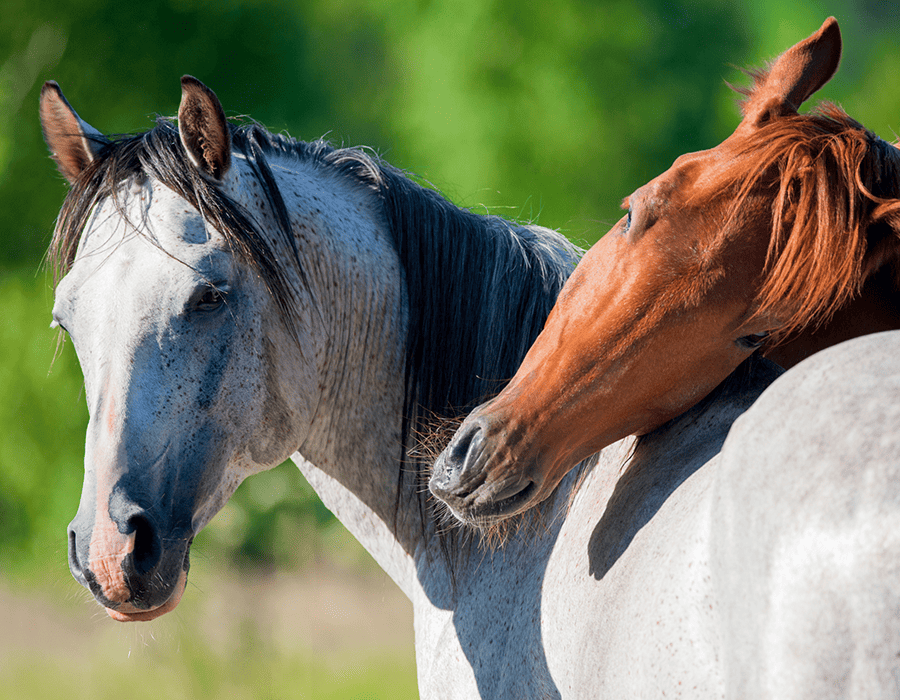
-
Problems persist. Hard to predict gut issues.
-
Symptoms. Persist even after changed to recommended or changing to a new feeding protocol.
-
Lacking Energy. Acting dull and not enthusiastic when being ridden.
-
Trial and Error. Costly, time consuming and difficult to know what's working and what's not.
-
Skin Irritations. Dealing with recurring hives and seasonal skin irritations.
-
Colic Concerns. Often dealing with bloating or gas and not sure what's causing it.
THE NEW WAY
With horseChek
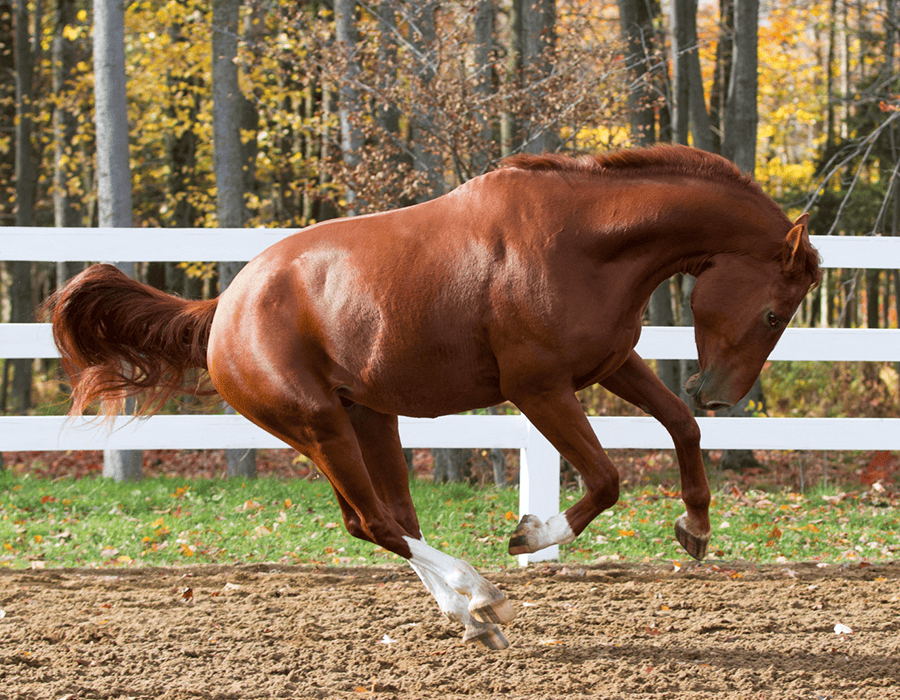
-
Problems solved. Performance, behaviour and overall spirits in top form.
-
Trusted - Proven and trusted intolerance test.
-
Safe. Collect mane and coat sample right at the stable and mail to lab.
-
Affordable. Discover results affordably.
-
Fast. Results emailed to you within 7 to 10 days upon receipt of the sample.
-
Knowledge. Eliminate trial and error and know how to select the right feed for your horse's program.
How It Works
Purchase your horseChek test
Collect and mail your sample
Receive your horse's health report and food suggestions
Make informed feed choices for your horse
What is a Food Intolerance or Sensitivy?
Food intolerances occur when your horse cannot properly digest or break down certain foods, causing a digestive system response or a digestive upset. Sometimes, the feed we provide can lead to an irritated digestive system.
There are many factors that contribute to food intolerances. In some cases they may lack the specific chemicals, or enzymes to break down and properly digest certain proteins found in that food. Also common intolerances are due to seasonal grasses, or supplements containing ingredients added to provide colour or preserve the feed..
The most common symptoms of food intolerances are bloating, gas, diarrhea, skin irritations, itching, colic and many more.

What does the Gut Test check?
The nutrients they are absorbing well from their food and the ones they may be lacking
Intolerances with digesting certain foods
Identifying food intolerances so you can make positive health focused choices moving forward
Clear concise, easy to read test results
What's Included In My Test?
Receive Personalized Recommendations
Your horse's sample tested against hundreds of food and non-food items
A comprehensive report detailing your horse's results in an easy to understand format
Complimentary results review with one of our horseChek experts
Piece of mind, knowing that you are supporting their health and wellbeing
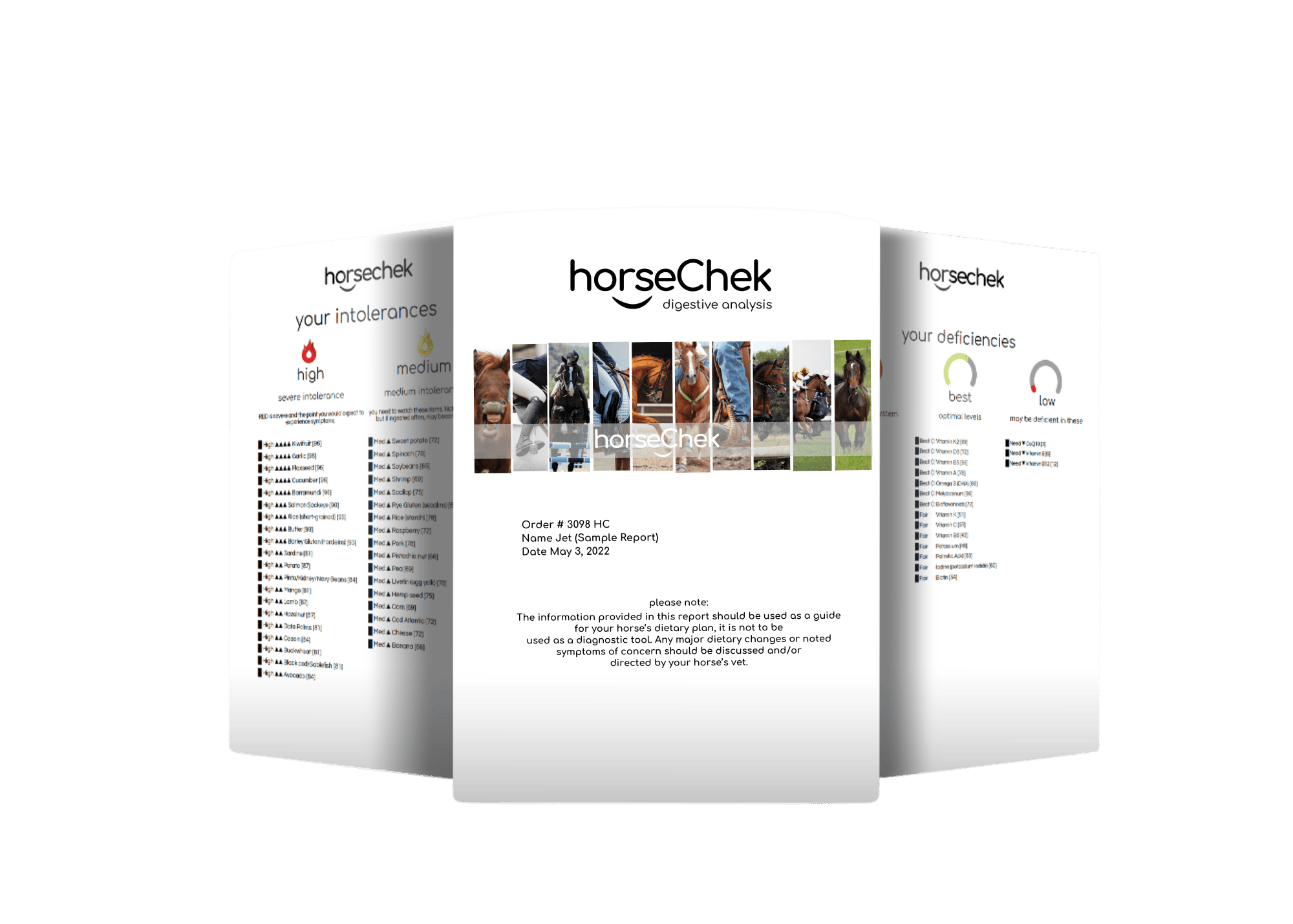
Once your results are in, they will be analyzed by one of our horseChek experts. Your horse's personalized wellness recommendations are designed to help balance their overall digestive health and wellness, delivered through the report, so you'll be able to make great choices moving forward!
Food sensitivities can help with:
Bloating
Coughs
Skin Irritations
Fatigue
Gas
Diarrhea
Hives
Weight Gain
Colic Symptoms

A road map to better health
$169.00
Learn how your horse's system is responding to current its current feed program
Personalized results provided for your horse's unique performance and wellbeing goals
Personalized complimentary review of your test results by one of our horseChek experts
Discover what nutrients they are absorbing well and the ones they may be low in
identify the best foods to support their optimal health, performance and overall well being.

What is Bioresonance?
Our testing process utilizes state of the art quantum physics technology that is a non-invasive process and able to detect changes on a cellular level from your horse's sample. Cells function energetically, so our tests can reveal electromagnetic disturbances the cells are experiencing and what could be causing the disruption.
The testing process identifies how your horse's system is responding to certain items, from their feeding program.
When the disturbance is detected, the testing can identify what may be causing the digestive response.
The test results provide you with a much better understanding of what may be causing the issue and the symptoms your horse is experiencing.
Benefits of Bioresonance
Non Invasive
Identifying food intolerances related to digesting certain foods
Providing the information you need to make the best choices for your horse's health and wellbeing
Less expensive than blood intolerance testing
Why horseChek?
Better Digestion
Sustainable Energy
Healthier Heart
Improve Immunity
Improve Metabolism
Enhanced Performance
Single Test
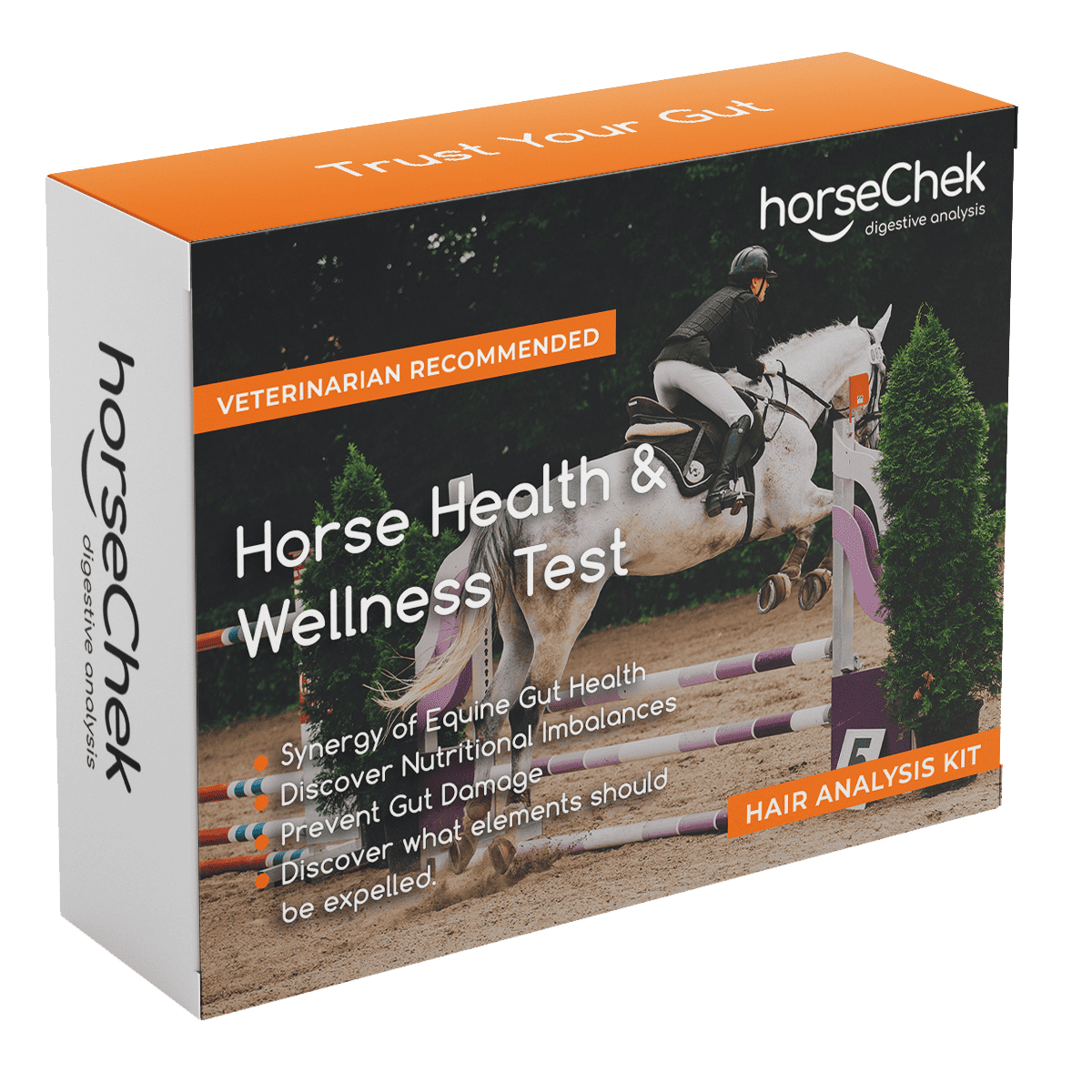
SAVE 20% 2 Tests

SAVE 30% Whole Heard - 5 Tests


Three-time Olympic dressage team member
I have had several horses tested by HorseChek to look more closely at their possible intolerances. Every result has been very helpful and I have been able to make positive differences to my horses' well being. Three horses have had dramatic results that are worth sharing.
One horse's results showed some mild intolerances so we adjusted her diet accordingly. She always had mild flare ups with her eyes, which produced tearing and swelling and subsequent Itchy irritation. After changing her diet we noticed that she stopped getting this condition. We added the initial feed, back into her diet and she had a mild flare up again so we have kept the change in diet and she is doing great!
Another horse was very hard to get weight on, in spite of feeding all the usual weight gain feeds. He was eating very well and in regular work. When his results came back he was listed as highly intolerant to almost all of the feeds we were giving him so we changed his diet accordingly and the change in him was quite dramatic. He began to fill out, gaining weight and muscle everywhere and his energy and ability to use himself easily, changed remarkably. He was definitely a happier horse on normal amounts of feed.
The third horse that also changed dramatically is a two year old youngster that spent a lot of time laying down, rolling, not wanting to get up and looked like colic, although it wasn’t. He was very round, a good weight and growing well. He did look bloated though and seemed to have a lot of gas but was never treated for any kind of colic. After getting his results we made a simple change in his feed which we thought would take several days to take effect. He actually looked much less bloated and was far more comfortable the next day. He has remained comfortable and is not showing any of the previous symptoms.
The testing process is easy to do and with a bit of investigation into the feeds and their contents we have made positive changes with many horses. I highly recommend this process to help maximize the well being of your horses! I have also had my testing done and have made some positive changes in myself.
Regards, Gina Smith
Three-time Olympic dressage team member
FREQUENTLY ASKED QUESTIONS
At least 7 to 10 individual strands of mane with the root, if possible. You can also include a few coat hairs.
